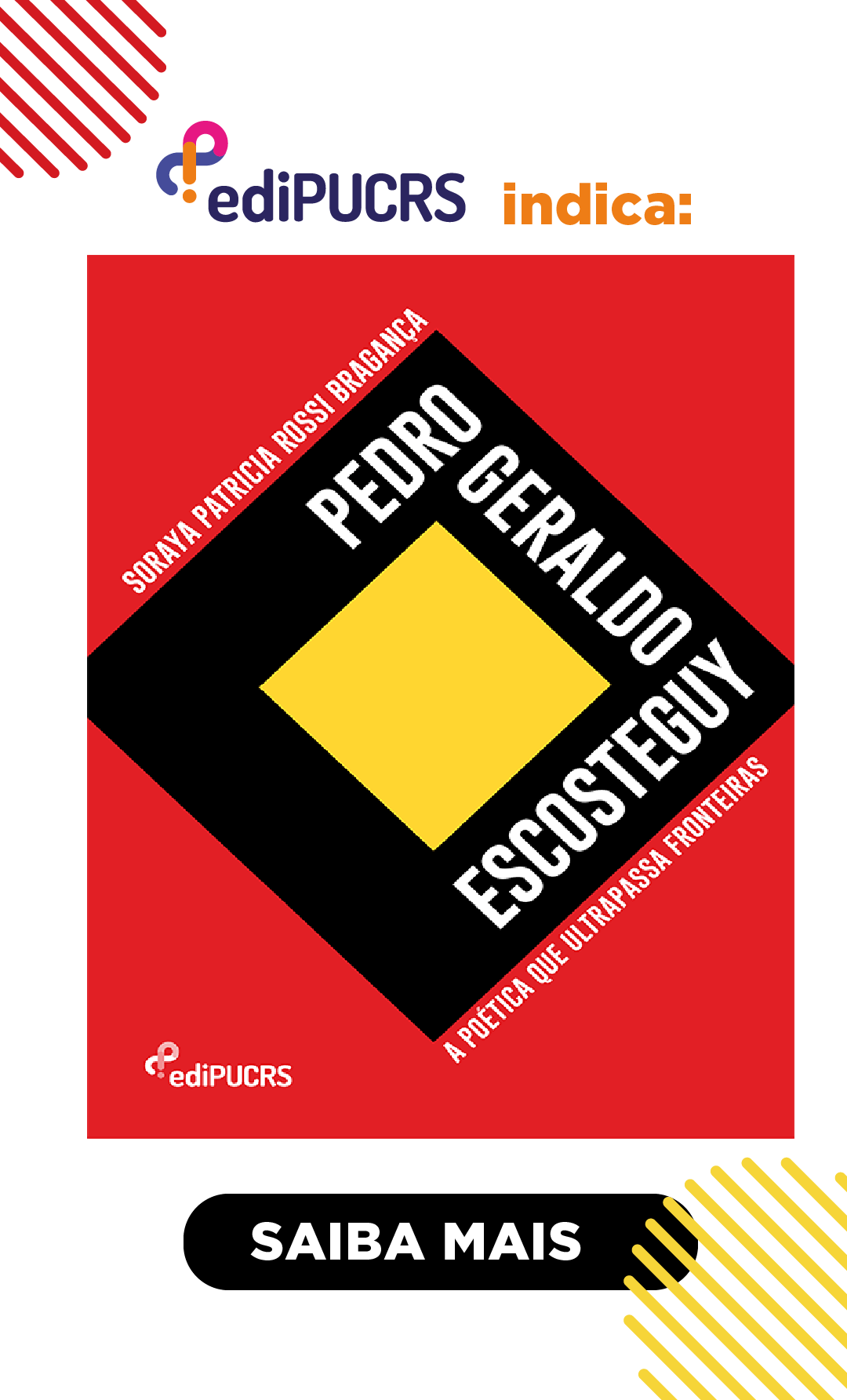From exile and from return to maternal uterus
The Great Mother simbology in the nationalist poetry of Casimiro de Abreu
DOI:
https://doi.org/10.15448/1983-4276.2021.2.40620Keywords:
Casimiro de Abreu, Nationalist poetry, Great Mother Archetype, Cradle-grave, Symbolism of intimacyAbstract
The nationalist poetry of Casimiro de Abreu, influenced by the 1st romantic generation, is configured in a symbolic language around the homeland, establishing myths and archetypes that make it possible to represent the feeling of “homecoming”, observed in his lyrical production of “matriotic” exaltation, a semantically more appropriate term to illustrate nationalism. This feeling, instituted in the tension between the personal unconscious and the collective unconscious, founds the image of the benevolent Great Mother, isomorphic to the nation. From the earliest memories of childhood sublimated by the image of the cradle, until the end of existence, established by the image of the tomb, the values of maternal intimacy populate the lyrical imaginary of Casimiro de Abreu. Such images, in addition to strengthening the symbol of the Great Mother, also point to a reflection that the homeland (isomorphically maternal) transmits peace to the lyrical subject, becoming the uterine cavity where his spoils will return.
Downloads
References
ABREU, Casimiro. As Primaveras. – Goiânia: Kelps, 2009.
AMORIM, M; SOUSA, D. Arquétipo do paraíso: imagens do espaço sagrado na poética de Gonçalves Dias. Travessias, Cascavel, v. 13, n. 3, p. 199-213, set./dez. 2019. Disponível em:
http://e-revista.unioeste.br/index.php/travessias/article/view/22953. Acesso em 25 mar. 2021.
BACHELARD, Gaston. A poética do espaço. Tradução Antonio de Pádua Danesi. 2ª ed. São Paulo: Martins Fontes, selo Martins, 2008. (Coleção Tópicos)
BANDEIRA, Manuel. Seleta de Prosa. – Rio de Janeiro: Nova Fronteira, 1997.
CITELLI, Adilson. Romantismo. 4. ed. – São Paulo: Ática, 2007.
DIAS, Antonio Gonçalves. Poesias Escolhidas. São Paulo: Editora Ática, 2008.
DURAND, Gilbert. A imaginação simbólica. Tradução Eliane Fittipaldi Pereira. – São Paulo: Cultrix, Editora da Universidade de São Paulo, 1988.
DURAND, Gilbert. As estruturas antropológicas do imaginário: introdução à arquetipologia geral. Tradução Hélder Godinho. – 3ª ed. – São Paulo: Martins Fontes, 2002. – (Coleção biblioteca universal)
ELIADE, Mircea. O sagrado e o profano: a essência das religiões. Tradução Rogério Fernandes. – 3ª. ed. – São Paulo: Editora WMF Martins Fontes, 2010. – (Biblioteca do pensamento moderno)
JUNG, Carl Gustav. Os arquétipos e o inconsciente coletivo. Tradução Maria Luiza Appy, Dora Mariana R. Ferreira da Silva. – 9. ed.- Petropólis, RJ: Vozes, 2012.
JUNG, Carl Gustav. Símbolos da transformação: análise dos prelúdios de uma esquizofrenia. Tradução de Eva Stern; revisão técnica Jette Bonaventure. 9. ed. – Petrópolis, Vozes, 2013.
QUASIMODO, Salvatore. Poesias escolhidas. Tradução Sílvio Castro. – Rio de Janeiro: Editora Ópera Mundi, 1971.
SCHWARCZ, Lilia K. Moritz. A natureza como paisagem: imagem e representação no Segundo Reinado. Revista USP, São Paulo, nº 58, p. 6-29, junho/agosto 2003. https://doi.org/10.11606/issn.2316-9036.v0i58p6-29
Downloads
Published
How to Cite
Issue
Section
License
Copyright (c) 2021 Navegações

This work is licensed under a Creative Commons Attribution 4.0 International License.
Copyright
The submission of originals to Navegações implies the transfer by the authors of the right for publication. Authors retain copyright and grant the journal right of first publication. If the authors wish to include the same data into another publication, they must cite Navegações as the site of original publication.
Creative Commons License
Except where otherwise specified, material published in this journal is licensed under a Creative Commons Attribution 4.0 International license, which allows unrestricted use, distribution and reproduction in any medium, provided the original publication is correctly cited.





